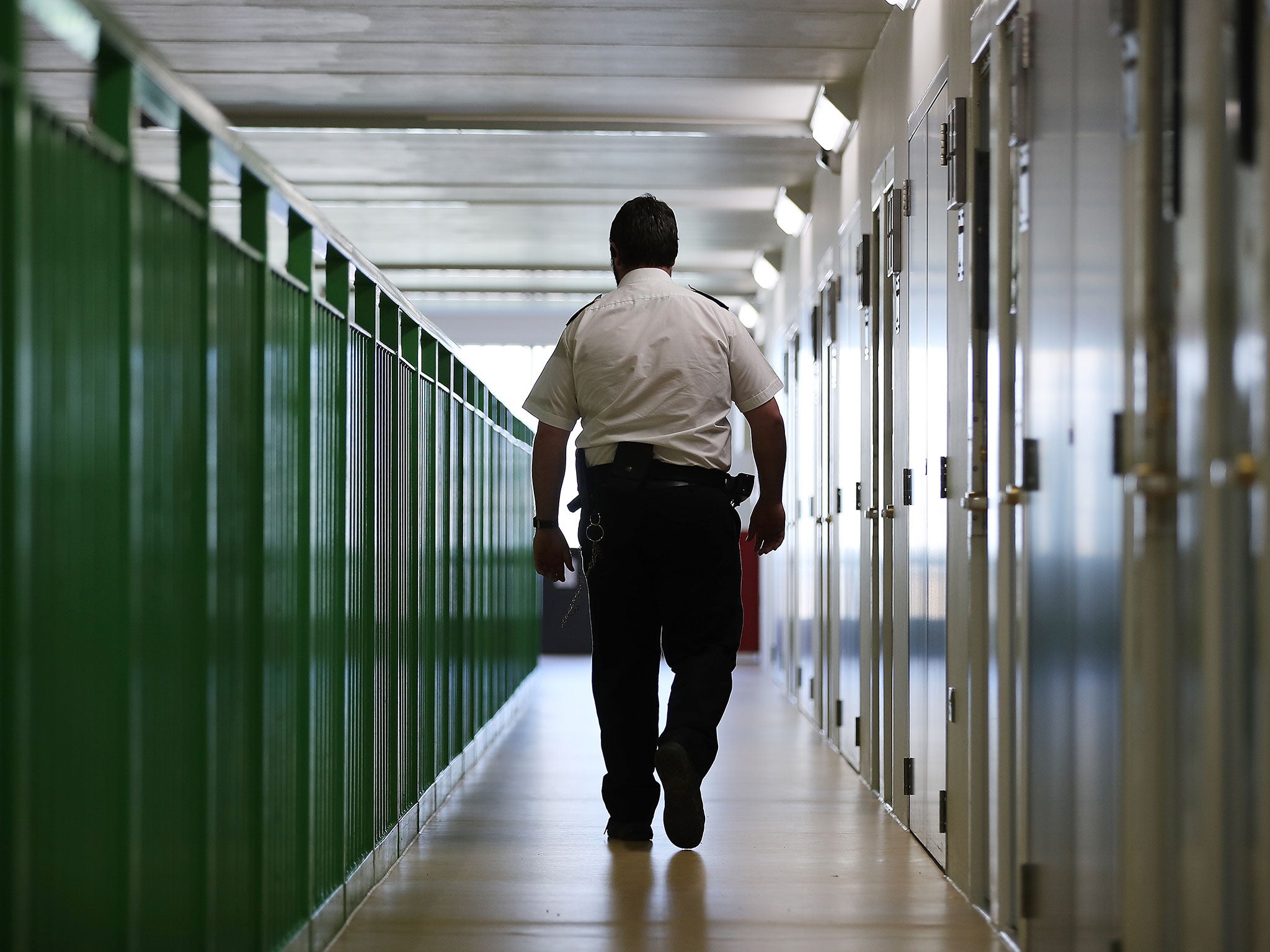Third of prison officers who quit leave within a year of starting, figures show
Exclusive: Chaos in the wings, lack of respect from management, and absence of support are among the reasons cited for the surge in officers resigning

A third of prison officers who leave the service quit within a year of starting, new figures show, prompting concerns that the crisis in UK jails is being exacerbated by dwindling retention rates.
Chaos in the wings, lack of respect from management, and absence of support are among the reasons cited for the surge in officers resigning within months of starting.
An analysis of figures by Labour shows 33 per cent of outgoing officers in the past 12 months – a total of 694 – had been in the service for less than a year, a figure which stood at just 7 per cent in 2010. This equates to 12 per cent of new hires.
Less than one in three of those who left in the 12 months to June 2018 had been there for longer than 15 years, compared with nearly half (49 per cent) eight years ago.
The findings will raise concerns that the government’s recruitment drive, which has seen an additional 2,500 officers start in 2018, could be flawed.
It comes after The Independent revealed the number of prison officers resigning from their jobs more than doubled in two years, with figures showing one in 16 officers resigned last year, compared with one in 33 officers two years before and just one in 100 in 2009-10.
In April, the government celebrated the fact that it had passed its target to recruit an additional 2,500 prison officers by the end of 2018, saying there had been a net increase of 3,111 prison officers between October 2016 and March 2018.
Justice Secretary David Gauke said at the time: “Going beyond this important milestone so early is a real achievement", claiming it would make a "real difference" to the safety and security in prisons.
But critics argue that the new officers are not being adequately trained and are being forced into challenging and sometimes dangerous situations before they are prepared or equipped to do so, leading to large numbers deciding to quit within months.
The prisons watchdog warned in July that prisoners in England and Wales were enduring the “most disturbing conditions ever seen” as authorities fail to take action to curb record high levels of violence and self-harm in jails.
Earlier this month, the government was forced to “step in” and take full control of the privately run HMP Birmingham, a jail that has been dogged by soaring violence, drug use and appalling living conditions.
Shadow justice secretary Richard Burgon MP told The Independent the short retention rates demonstrated the government’s “contempt” for frontline prison officers.
“These hardworking public servants put themselves in danger day in, day out, and yet the justice secretary can’t even be bothered to explain why he won’t give them the pay rise they deserve,” he said.
“If ministers want to show they are serious about halting this exodus of frontline staff, they could begin by accepting the recommendations of the independent pay review body.”
Peter Dawson, director of the Prison Reform Trust, said it was not surprising that more prison officers were resigning when so many had to work in “dangerous conditions”, where the reality was “light years away from the vision of a caring, rehabilitative service that the job advert described”.
“The catastrophic cuts that were made in the years after 2012 have destroyed confidence built up over decades. Rebuilding a safe environment will take more time and more resource than the ministry currently has to spend,” he added.
“So as well as securing more money in the short term to recruit and retain in the prisons where officers leave fastest, ministers must also deliver on their promise to reduce the turnover of short term prisoners.
“A policy of one person in one cell is the quickest and most effective route to a safe prison, where officers get to do the job they joined for.”
Responding to the figures, a Prison Service spokesperson said: “We are well ahead of our recruitment target, with 90 per cent of our new 3,111 prison officers due to be on landings this summer.
“The leaving rate remains broadly in the normal range for workforces of this type and fell over the 12 months to June 2018. Retention is of course vital, which is why we have increased pay 2.75 per cent this year, on top of a 1.7 per cent average increase last year.
“It is also why we are rolling out body worn cameras, ‘police-style’ handcuffs and restraints, and trialling PAVA incapacitant spray to ensure prison officers have the tools they need to do the job safely.”
Bookmark popover
Removed from bookmarks